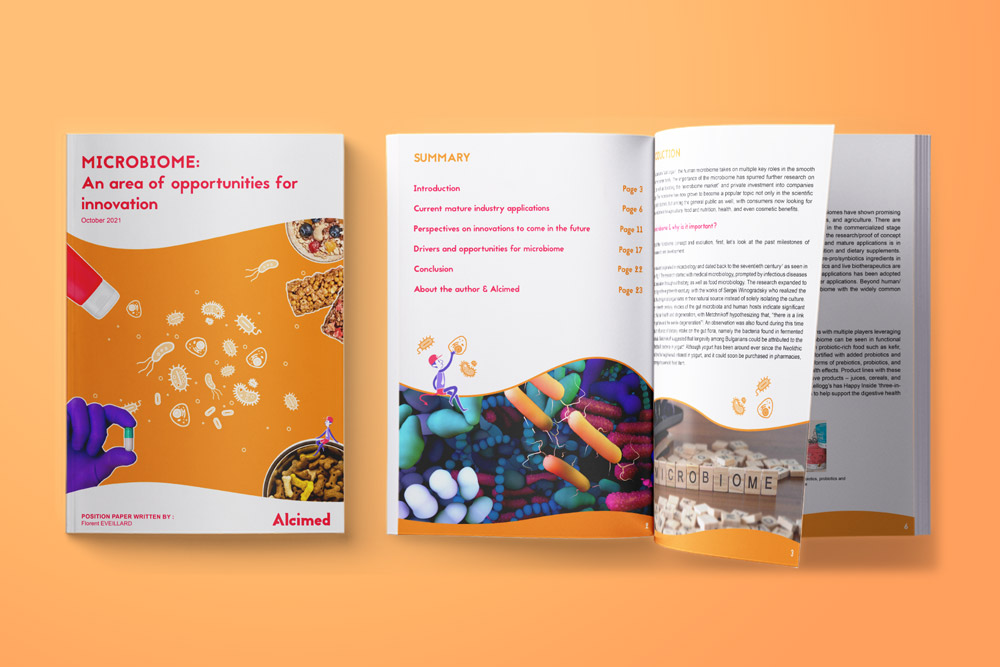Type 2 diabetes (T2D) prevalence is rising at a rate of 2.5% per year with more than 60% of the diabetes patients located in Asia, with countries like China, India and Indonesia leading in prevalence rates. Diabetes prevention have been identified by ex-UN Secretary-General, Ban Ki-moon, as being crucial to reduce blindness, life expectancy and other severe complications. For this reason, diabetes management is a key part of the UN Sustainable Development Goal No. 3 of ensuring healthy lives and promoting well-being for all at all ages.
Apart from having stronger genetic predisposition for T2D, socio-economic factors such as switching to a more western diet have driven rise in diabetes mellitus prevalence in Asia. As such, several countries are implementing active measures to curb type 2 diabetes rise, with countries like Thailand and the Philippines even implementing sugar taxes. Consequently, Asian companies are investing more into innovations surrounding diabetic food. In this article, Alcimed will explore three areas Asia is adding its unique touch in diabetes prevention and management through diabetic food innovations.
First Diabetic Food Innovation: lowering the Glycemic Index of Traditional Staples like Rice and Bread
Glycemic control is crucial to diabetes prevention and management and lowering Glycemic Index (GI) in foods can be particularly impactful for Asians who generally eat high glycemic food index like white rice.
A Singaporean startup, Alchemy Foodtech developed blends of plant diatery fibres that would lower the GI of carbohydrate staples like rice and flour when added to the mix during cooking. The product forms a layer around the carbohydrate to slow its digestion and the release of glucose. White rice booked with Alchemy diatery fibres have a GI as low as that of brown rice and the product not only manages blood glucose health without compromising texture, but can also increases diatery fibre intake. The diabetic low GI bread range launched by Nova Laboratories Malaysia on the other hand replaces white flour with ‘slow carbs’ which are digested slower and fortified with Omega-9.
Food companies like Alchemy Foodtech and Nova Laboratories seek to preserve the taste and texture while improving the nutritional status of their food products, to encourage low glycemic index foods consumption and achieve market success.
Second Diabetic Nutrition Innovation : using Probiotics from Traditional Asian Fermented Foods to Support Gut Health and Blood Sugar Control
Remodeling of the gut microbiota through eating probiotics has been found to be a potential way to treat type 2 diabetes and there is an emerging body of research looking into specific bacteria species in foods. Studies have found that microbiome diversity and insulin resistance differs in type 2 diabetes patients and bacteria strains like Lactobacillus species can help manage blood glucose levels by countering the effect of insulin resistance whereas others like Bacteroides are associated with T2D.
To discover more about gut microbiota, read also : Microbiome therapeutics: what are the current advances?
Traditional Asian fermented foods such as kimchi and natto can be rich in probiotics and have been found to support glycemic control. Traditional Korean diet which consists of probiotic-rich fermented foods have shown to reduce HbA1C glycated haemoglobin, a long term blood glucose level indicator, among type 2 diabetes patients. A kimchi-derived probiotic, Lactobacillus plantarum HAC01, was also found to improve T2D indicators in subject with impaired glucose tolerance. Other fermented probiotic foods like kefir, a probiotic-fermented milk have also shown to reduce fasting blood glucose and HbA1C levels.
Even though, these studies were performed on small sample sizes or in animals, and remain to be better validated, social beliefs on the benefits of probiotic-rich food is already driving the increased popularity of traditional Asian foods. This could bring potential opportunities for companies producing these traditional foods to open a new market segment in blood glucose control and diabetic food when positioned appropriately.
Discover all the potential of Microbiome in healthcare >
Third Diabetic Diet Innovation : Developing a Natural Approach to Diabetic Treatment with Traditional Herbal Medicines
It is not uncommon to find Asian diabetic patients supplementing their treatments with herbal remedies based on local beliefs. We are also seeing more scientific research backing some of these traditional botanicals. For example, Cordyceps militaris, a type of valuable and rare traditional Chinese medicine, has been found in research to improve glucose metabolism in hepatocytes and inhibit α-glucosidase which can slow dietary carbohydrates digestion, showing potentials in diabetic management and treatment.
Companies such as Autentik Palate, has developed a diabetic drink inspired by the traditional Indonesian herbal drink, jamu which is made from natural plant and animal extracts for improving digestion and immunity. This diabetic food product contains natural ingredients such as Java turmeric, which can delay glucose uptake and lower blood glucose levels.
Asian companies are starting to leverage onto local heritage for food innovations for their diabetic product development, riding on consumer beliefs of traditional botanicals with scientifically proven efficacies to improve blood glucose level. Through this, there would be lower consumer entry barrier amongst diabetic and prediabetic patients for companies.
With the rise in prevalence of type 2 diabetes in Asia, leveraging on lifestyle and local diets for product development are key to diabetes management and prevention. Different food diabetic products can be offered at different stages of the patient pathway with low Glycemid Index and probiotic food innovations targeting diabetic prevention and management while traditional herbal medicines offered as an diabetes alternative treatment. High sensory attributes were found to be factors that can encourage consumer diabetic food adoption and lower barriers of entry for companies. Following the advancement of technology, digital innovations beyond products can streamline diabetic care by offering more solutions to track and monitor blood glucose health. Alcimed can accompany you in your projects related to diabetic care. Do not hesitate to contact our team!
About the author,
Charmaine, Consultant in the Alcimed’s Life Science team in Singapour



